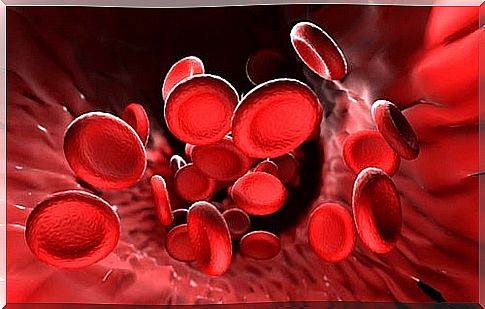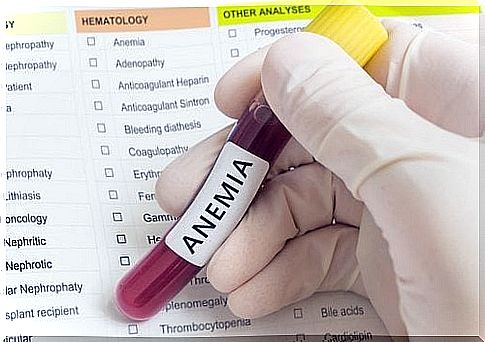The Consequences Of Iron Deficiency

The primary sign of iron deficiency is anemia. Iron deficiency, however, has several consequences that are worth knowing.
If you think you may be consuming less of the nutrient, we recommend paying attention to the following symptoms.
Iron deficiency is a global problem

Millions of people suffer from this nutrient deficiency in both developed and non-developed countries due to inefficient iron intake.
No one should ignore iron deficiency because it has harmful consequences for our health.
Among its many functions , iron allows our hemoglobin to function properly and provides oxygen to all cells.
It is essential for health. Since iron is found in small amounts in our body, it is also necessary to get it through food and above all through a balanced and varied diet.
There are two types of iron:
- The first is heme iron, found in animal feed. It is easily absorbed.
- The other is non-heme iron, which is found in vegetables and is not as easily absorbed by the body. Therefore, many vegetarians and vegans suffer from anemia.
Iron:
- Participates in the production of substances from the blood,
- Intervenes in DNA synthesis,
- Is part of the cellular respiration process,
- Helps maintain the immune system.
As if all this were not enough, iron also participates in many chemical reactions and is essential for the production and release of energy.
Your iron levels – do you suffer from iron deficiency?
You can have your blood tested to find out if you have iron deficiency:
- The normal values in adult men are 80 to 180 μg / dl.
- In adult women they are 60 to 160 μg / dl.
- For children it varies from 50 to 120 μg / dl.
- In infants under 1 year of age, the values should be between 100 and 250 μg / dl.
If your iron level is higher than average, it may be due to diseases such as:
- hemochromatosis
- Hepatitis
- Haemolytic anemia
- Iron poisoning.
Similarly, your iron levels may drop under certain special circumstances such as:
- Pregnancy
- Malnutrition
- Cancer
- Chronic blood loss
- Chronic hypermenorrhea.
Consequences of iron deficiency

Pay attention to certain signs that your body sends to tell you that it is lacking this important nutrient.
If you have several of these symptoms, it is a good idea to consult a doctor and get a blood test:
Weakness and fatigue
No matter how many hours you sleep or times during the day you rest, you always feel lethargic and lack strength. It’s hard for you to get up in the morning and you fall asleep anywhere.
In addition to your daily chores, this weakness or fatigue can also be due to lack of iron.
Since this nutrient makes it possible to transport oxygen to cells, our tissues do not receive “fuel” if it is lacking and it is unable to work.
Therefore, less vitality and extreme fatigue after completing low-intensity activities may be related to iron deficiency.
Poor performance and bad mood

The lack of nutrients has a direct impact on our emotional states. Therefore, it is normal for us to be very irritable, depressed or moody when we lack iron.
In addition, if we add fatigue to this, the consequences are understandable: problems with our performance at work, with our studies or the completion of everyday tasks.
Be aware of this if everything has gone wrong lately and you can not concentrate on your activities.
In addition, iron deficiency has a negative impact on memory and attention. You will need twice as much work to do everything you try to accomplish. You will also lose your motivation quickly, even by trying to perform tasks that you like.
Paleness
When you have anemia, it is likely that your skin will be lighter or whiter than normal.
This is because both the dermis and the mucosal tissue do not get enough oxygen.
Some people may have whitish color under their eyes (where the eyelashes start).
Dizziness and nausea may be a sign of iron deficiency

One of the consequences of iron deficiency and a deficit in the amount of oxygen that the cells receive is persistent dizziness.
Additionally, you experience the sensation of lack of air when you try to breathe. You can also breathe faster and more frequently (polyp snow).
In more severe cases, people who do not get adequate amounts of this nutrient can faint at any time of the day. They may also experience a ringing in the ears or suffer from lipodystrophies.
5. Palpitations
The rapid heartbeats that occur when you are not pushing yourself or exercising may be related to iron deficiency.
When your blood is not circulating well, the cardiovascular system must make a greater effort to pump it back to each organ.
Tachycardia, arrhythmias and even acute myocardial infarction can occur.
Fragile nails and hair loss
When your nails break easily, are thin or have white marks on them near the cuticle, it may be due to lack of iron.
In case of hair loss, this is because the blood gets to the head with a little oxygen formation which does not nourish the hair follicles.









